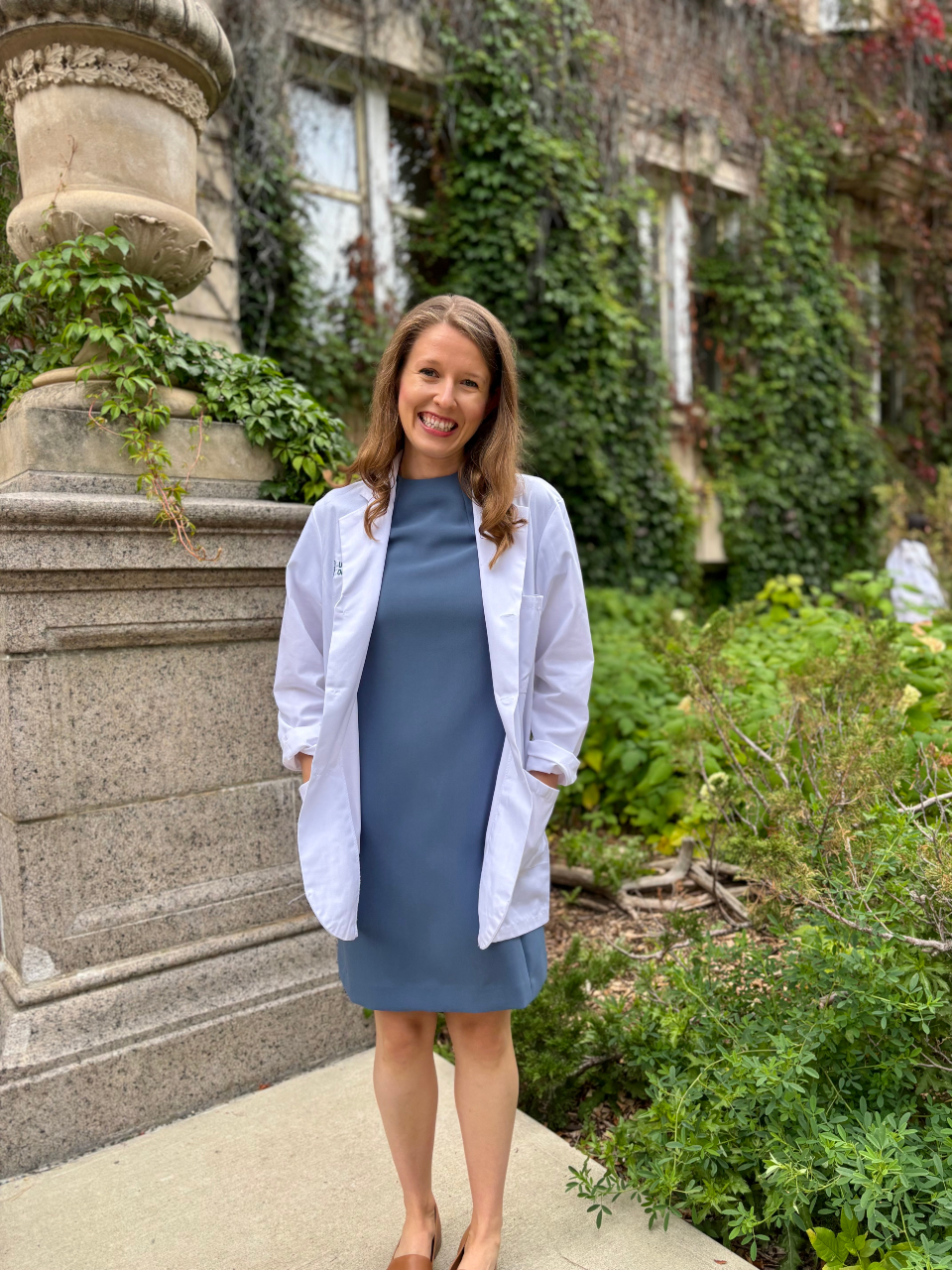Student researcher speaks about the importance of empowering community voices
11 December 2023

Graduate research assistant Rachel Hislop-Hook. Photo supplied.
Health care has long grappled with the challenge of effectively addressing the health needs of diverse communities. The concept of social accountability is a way to guide efforts to bridge gaps between medical education, research and community identified health priorities. Student researchers’ opportunities for early engagement in this area can meaningfully impact both their professional development and community health.
Graduate research assistant Rachel Hislop-Hook took part in an innovative project with the Faculty of Medicine & Dentistry’s Social Accountability Task Group (SATG) to gather and analyze data and create a vision for social accountability within the faculty.
“At its core, social accountability in health care is about meeting the community's health needs diligently and responsibly,” says Hislop-Hook. The World Health Organization stresses the importance of directing medical education and research towards the priority health needs identified “not only by governments and health-care organizations, but also by health professionals and, critically, the public itself,” she adds.
Hislop-Hook’s journey into the field of social accountability was somewhat unplanned. She began this work while completing a master’s degree in counselling psychology, which she believes helped her develop the ability to listen attentively to others, and equipped her with qualitative research skills. As she took on a role within the SATG, she says, “I enjoyed meticulously documenting discussions with stakeholders, a diverse group that included government officials, health-care organizations, health professionals, Indigenous communities and other racialized communities.”
“We used qualitative data analysis methods, particularly thematic analysis. In doing so, we identified shared themes across discussions, which would inform the development of a comprehensive social accountability framework for the Faculty of Medicine and Dentistry.”
The research employed what is known as the conversational method — an Indigenous research technique.* “This method prioritized open-ended dialogue, allowing community voices to define social accountability on their terms,” she notes. She was to be the observer and notetaker, ensuring that the essence of these dialogues was captured accurately and meaningfully.
Post-meeting, Hislop-Hook's work involved debriefing sessions with task force members to ensure the accuracy of what was recorded. “These notes were then promptly shared with the task force for review, forming the basis for thematic analysis,” she explains.
Through a series of 12 focus groups and an internal consultation process that included surveys of undergraduate and graduate students, as well as postgraduate medical trainees within the faculty, the research successfully gathered diverse perspectives. These efforts culminated in a 34-page report detailing the methods and findings of the research — an invaluable resource for future policy and program development within the faculty.
After completing her master’s in counselling, Hislop-Hook began her first year of medical school at the U of A. “I feel incredibly privileged to have had this window into the community’s voice before even starting medical school.”
As Hislop-Hook moves forward in her medical career she says she will always cherish and appreciate this experience. “Social accountability is like a lens to see medicine through, and it’s a lens I will carry with me the rest of my medical career. Ultimately, we are here to serve our community. We are here to meet the priority health needs of our community.”
* Kovach, M. (2010). Conversational Method in Indigenous Research. First Peoples Child & Family Review, 5(1), 40-48